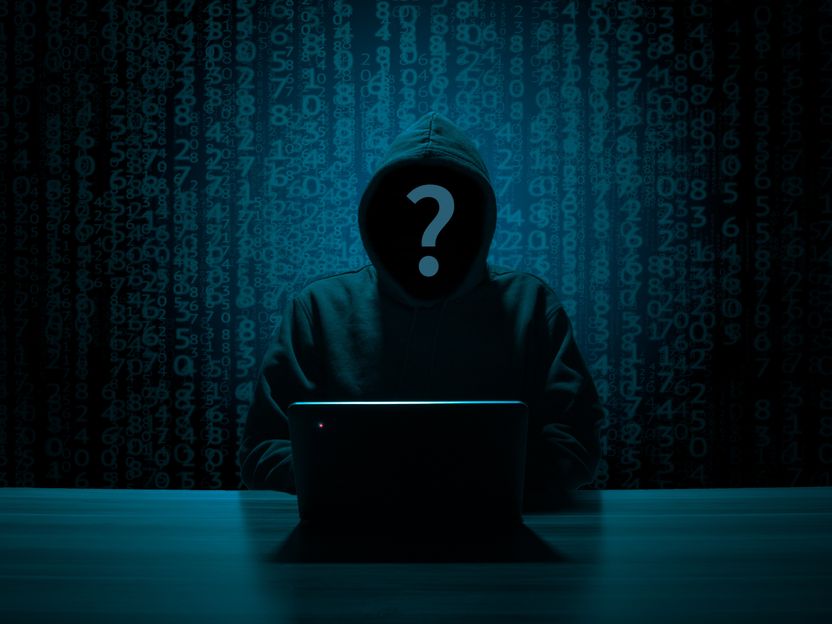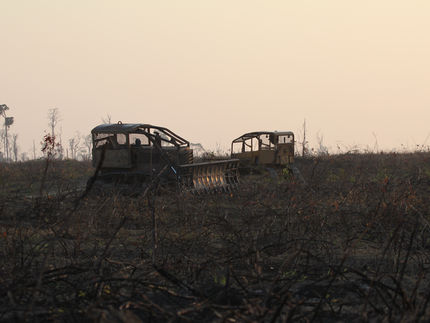Largest meat producer getting back online after cyberattack
Advertisement
The world's largest meat processing company has resumed most production after a weekend cyberattack, but experts say the vulnerabilities exposed by this attack and others are far from resolved.

pixabay
In a statement late Wednesday, the FBI attributed the attack on Brazil-based meat processor JBS SA to REvil, a Russian-speaking gang that has made some of the largest ransomware demands on record in recent months. The FBI said it will work to bring the group to justice and it urged anyone who is the victim of a cyberattack to contact the bureau immediately.
REvil has not posted anything related to the hack on its dark web site. But that's not unusual. Ransomware syndicates as a rule don't post about attacks when they are in initial negotiations with victims _ or if the victims have paid a ransom.
In October, a REvil representative who goes by the handle ``UNKN'' said in an interview published online that the agriculture sector would now be a main target for the syndicate. REvil also threatened to auction off sensitive stolen data from victims who refused to pay it.
The attack targeted servers supporting JBS's operations in North America and Australia. Backup servers weren't affected and the company said it was not aware of any customer, supplier or employee data being compromised.
JBS said late Wednesday said that it expects to resume production at all its plants on Thursday and be running at ``close to full capacity'' across its global operations.
It is not known if JBS paid a ransom. The company hasn't discussed it in public statements, and did not respond to phone and email messages Wednesday seeking comment.
The FBI and the White House declined to comment on the ransom. White House Press Secretary Jen Psaki said Wednesday the U.S. is considering all options in dealing with the attack and that President Joe Biden intends to confront Russia's leader, Vladimir Putin, about his nation's harboring of ransomware criminals when the two meet in Europe in two weeks.
"I can assure you that we are raising this through the highest levels of the U.S. government,'' she said. "The president certainly believes that President Putin has a role to play in stopping and preventing these attacks.''
While there is no evidence Russia benefits financially from ransomware crime _ which has hit health care, education and state and local governments especially hard during the pandemic _ U.S. officials say its practitioners have sometimes worked for Kremlin security services.
Ransomware expert Allan Liska of the cybersecurity firm Recorded Future said JBS was the largest food manufacturer yet to be hit by ransomware, in which criminal hackers paralyze entire networks by scrambling their data. But he said at least 40 food companies have been targeted by ransomware gangs over the last year, including brewer Molson Coors and E & J Gallo Winery.
Food companies, Liska said, are at ``about the same level of security as manufacturing and shipping. Which is to say, not very.''
The attack was the second in a month on critical U.S. infrastructure. Earlier in May, hackers believed to operate with impunity in Russia and allied states shut down operation of the Colonial Pipeline, the largest U.S. fuel pipeline, for nearly a week. The closure sparked long lines and panic buying at gas stations across the Southeast. Colonial Pipeline confirmed it paid $4.4 million to the hackers, who then turned over a software decryption key.
Cybersecurity experts said the attacks targeting critical sectors of the U.S. economy are evidence that industry hasn't been taking years of repeated warnings seriously.
Cybercriminals previously active in online ID theft and bank fraud moved into ransomware in the mid-2010s as programmers developed sophisticated programs that permitted the software's more efficient dissemination.
The ransomware scourge reached epidemic dimensions last year. The firm CrowdStrike observed over 1,400 ransomware and data extortion incidents in 2020. Most targeted manufacturing, industrials, engineering and technology companies, said Adam Meyers, the company's vice president of intelligence.
"The problem has been spiraling out of control,'' said John Hultquist, who heads intelligence analysis at FireEye. "We're already deep into a vicious cycle.''
Hultquist said ransomware syndicates are going after more critical and visible targets because they've invested heavily in identifying ``whales'' - companies they think will yield big ransoms.
JBS is the second-largest producer of beef, pork and chicken in the U.S. If it were to shut down for even one day, the U.S. would lose almost a quarter of its beef-processing capacity, or the equivalent of 20,000 beef cows, according to Trey Malone, an assistant professor of agriculture at Michigan State University.
Mark Jordan, who follows the meat industry as the executive director of Leap Market Analytics, said the disruption to the food supply will likely be minimal in this case. Meat has around a 14-day window to move through the market, he said. If a plant is closed for a day or two, companies can usually make up for lost production with extra shifts.
"Several plants owned by a major meatpacker going offline for a couple of days is a major headache, but it is manageable assuming it doesn't extend much beyond that,'' he said.
Jordan said a closure that runs closer to a week would be more serious, especially for a company like JBS, which controls around one-fifth of the country's beef, pork and chicken supply.
Critical U.S. infrastructure might be better hardened against ransomware attacks were it not for the 2012 defeat of legislation that would have set cybersecurity standards for critical industries.
The U.S. Chamber of Commerce and other business groups lobbied hard against the bill, condemning it as government interference in the free market. Even a watered-down version that would have made the standards voluntary was blocked by a Republican filibuster in the Senate.
Right now, the U.S. has no cybersecurity requirements for companies outside of the electric, nuclear and banking systems, said David White, president of the cyber risk management company Axio.
White said regulations would help, particularly for companies with inadequate or immature cybersecurity programs. Those rules should be sector-specific and should consider the national economic risks of outages, he said.
But he said regulations can also have an unintentional negative effect. Some companies might consider them the ceiling _ not the starting point _ for how they need to manage risk, he said.
"Bottom line: regulation can help, but it is not the panacea,"' White said.
JBS plants in Australia resumed limited operations Wednesday in New South Wales and Victoria states, Agriculture Minister David Littleproud said. The company hoped to resume work in Queensland state on Thursday, he said.
JBS, which is a majority shareholder of Pilgrim's Pride, didn't say which of its 84 U.S. facilities were closed Monday and Tuesday because of the attack. It said JBS USA and Pilgrim's were able to ship meat from nearly all facilities Tuesday. Several of the company's pork, poultry and prepared foods plants were operational Tuesday and its Canada beef facility resumed production, it said.
The plant closures reflect the reality that modern meat processing is heavily automated, for both food- and worker-safety reasons. Computers collect data at multiple stages of the production process; orders, billing, shipping and other functions are all electronic. (dpa)
Note: This article has been translated using a computer system without human intervention. LUMITOS offers these automatic translations to present a wider range of current news. Since this article has been translated with automatic translation, it is possible that it contains errors in vocabulary, syntax or grammar. The original article in German can be found here.
































































